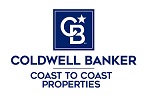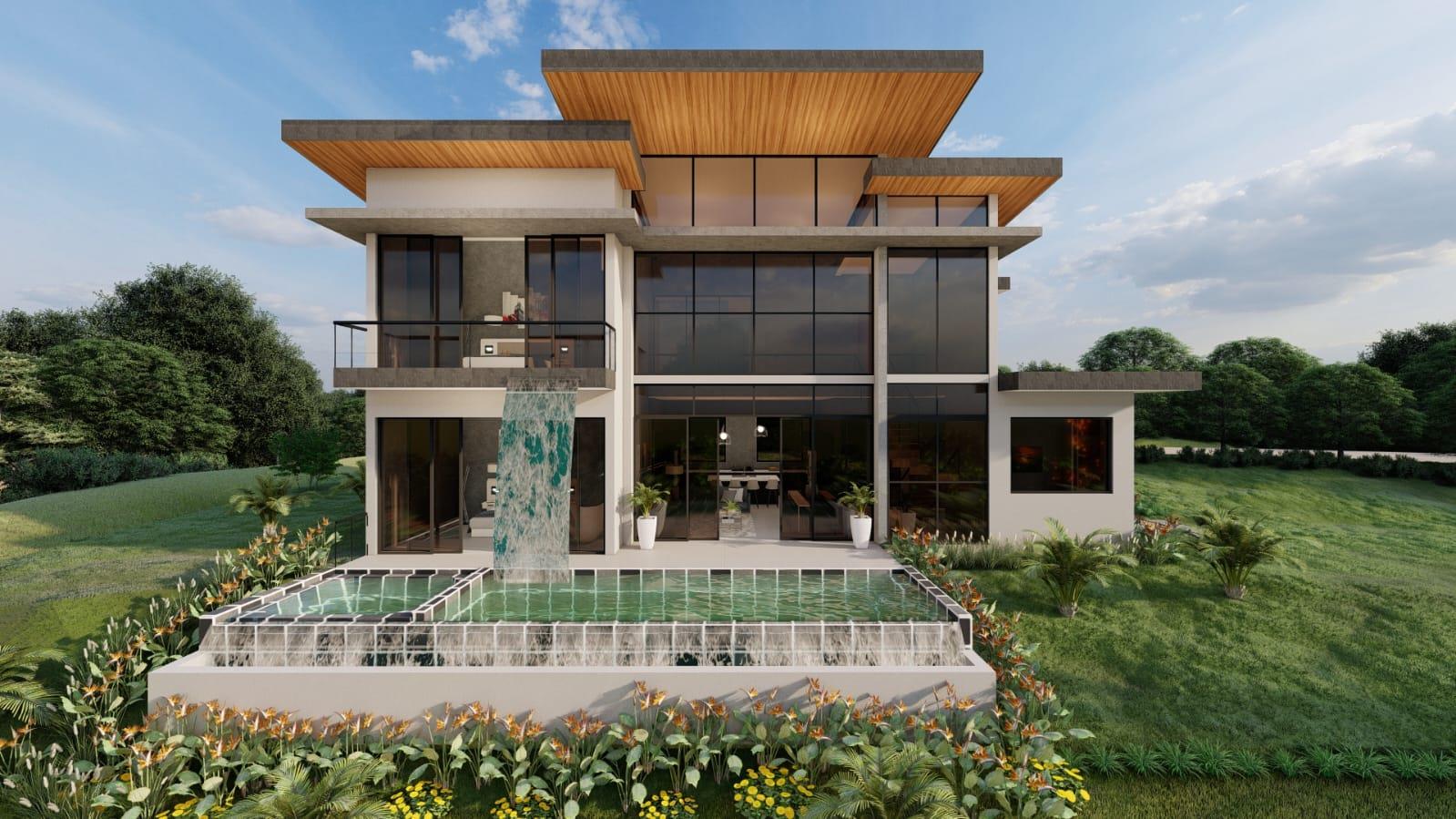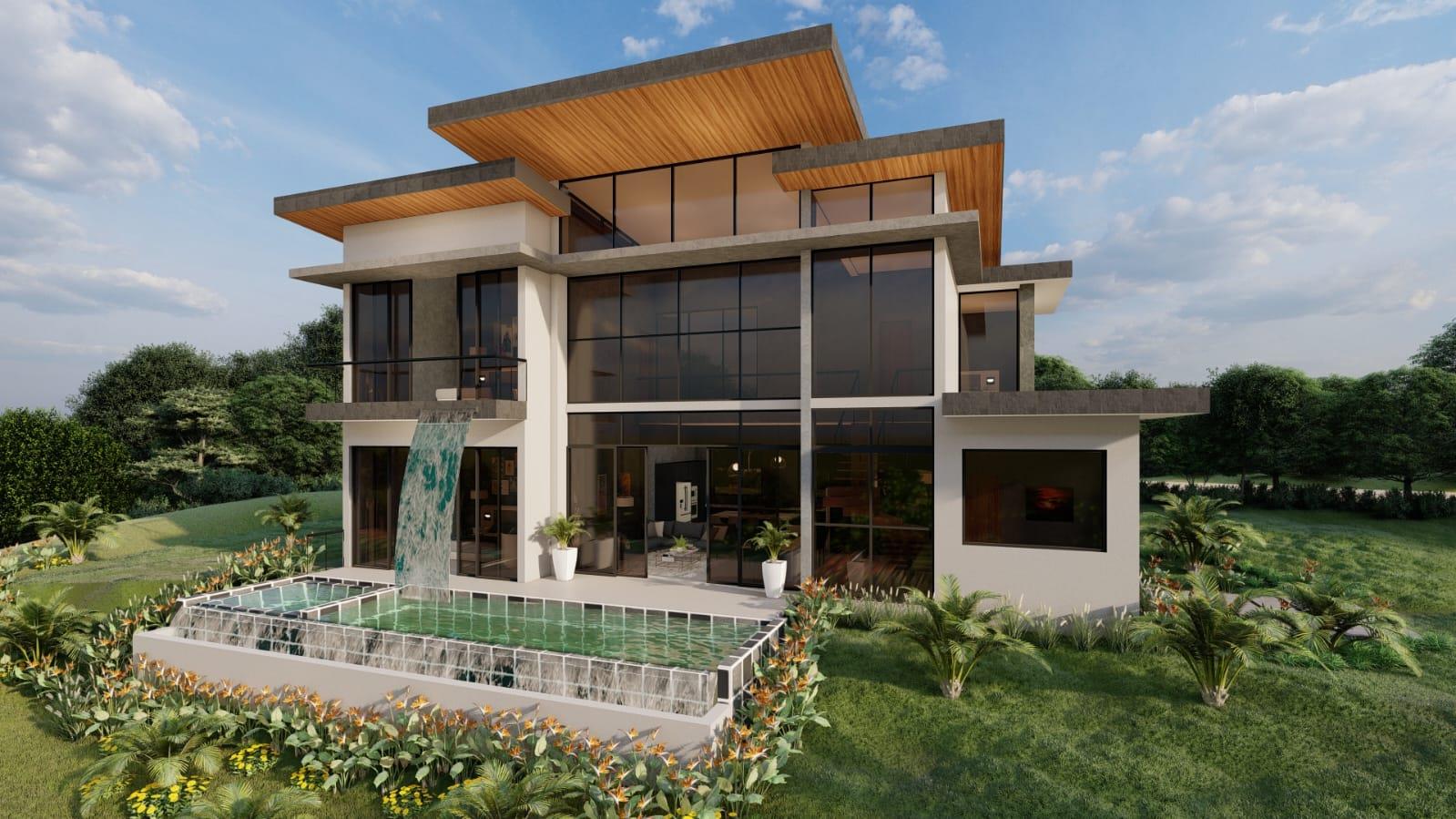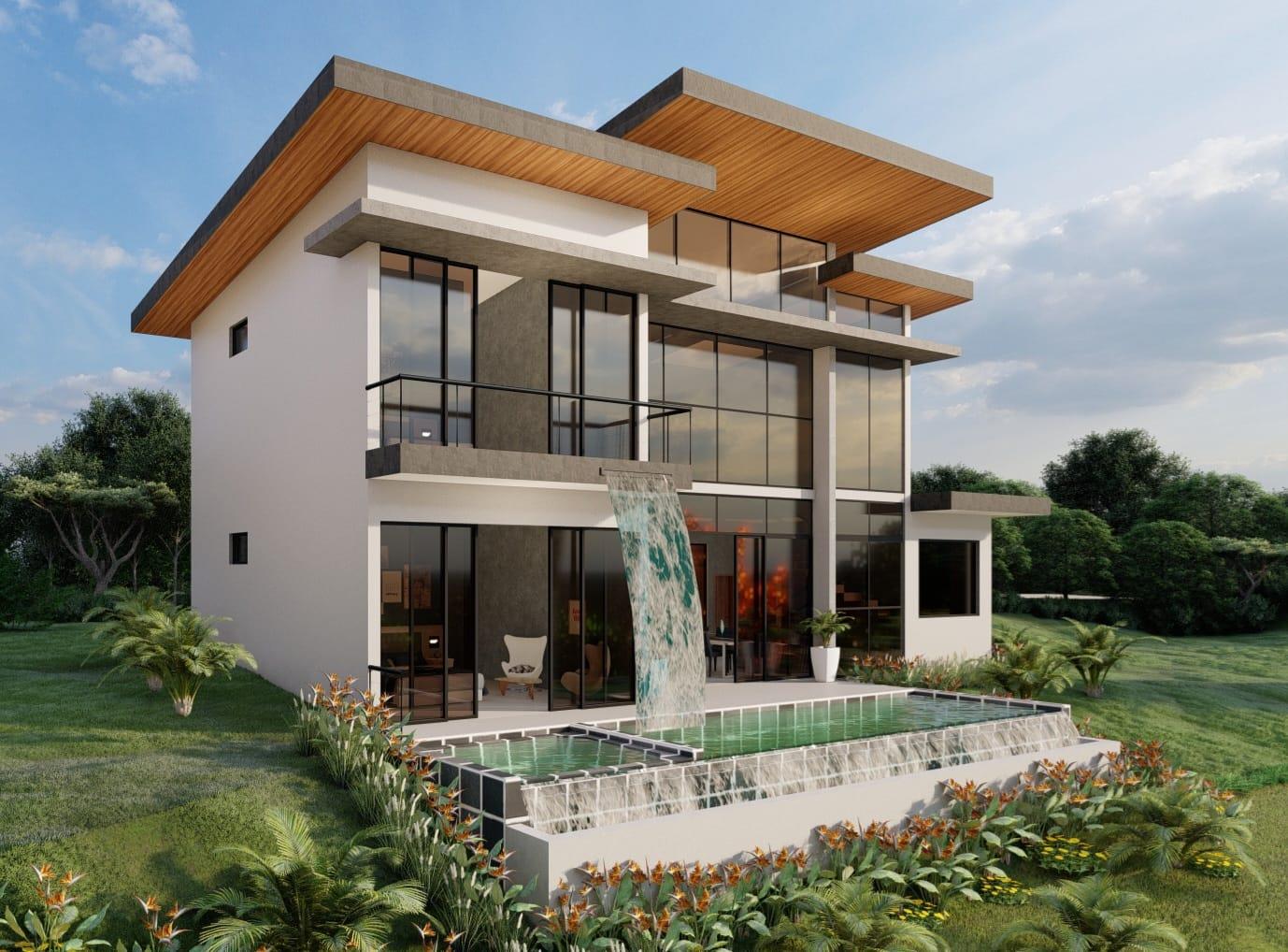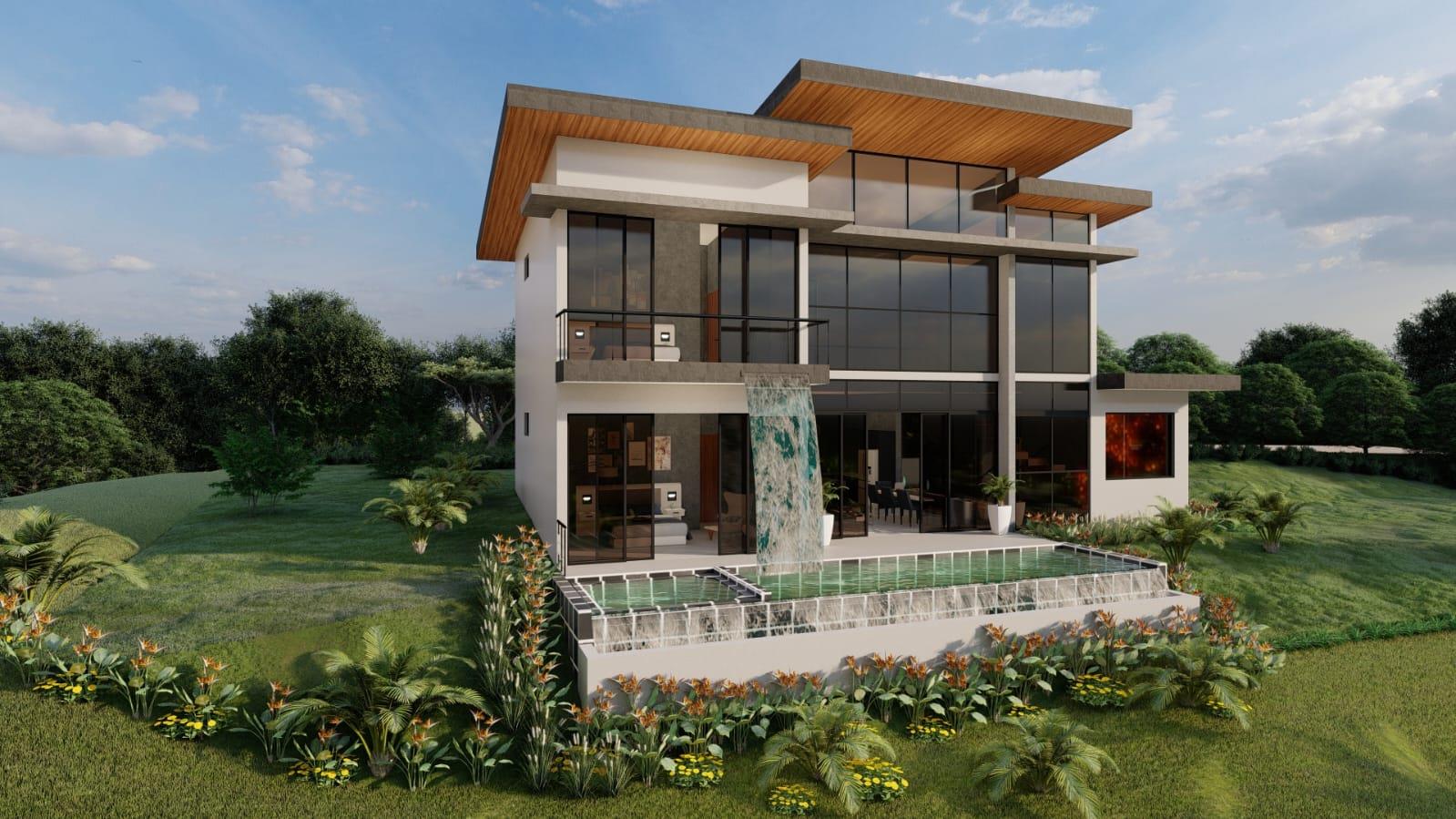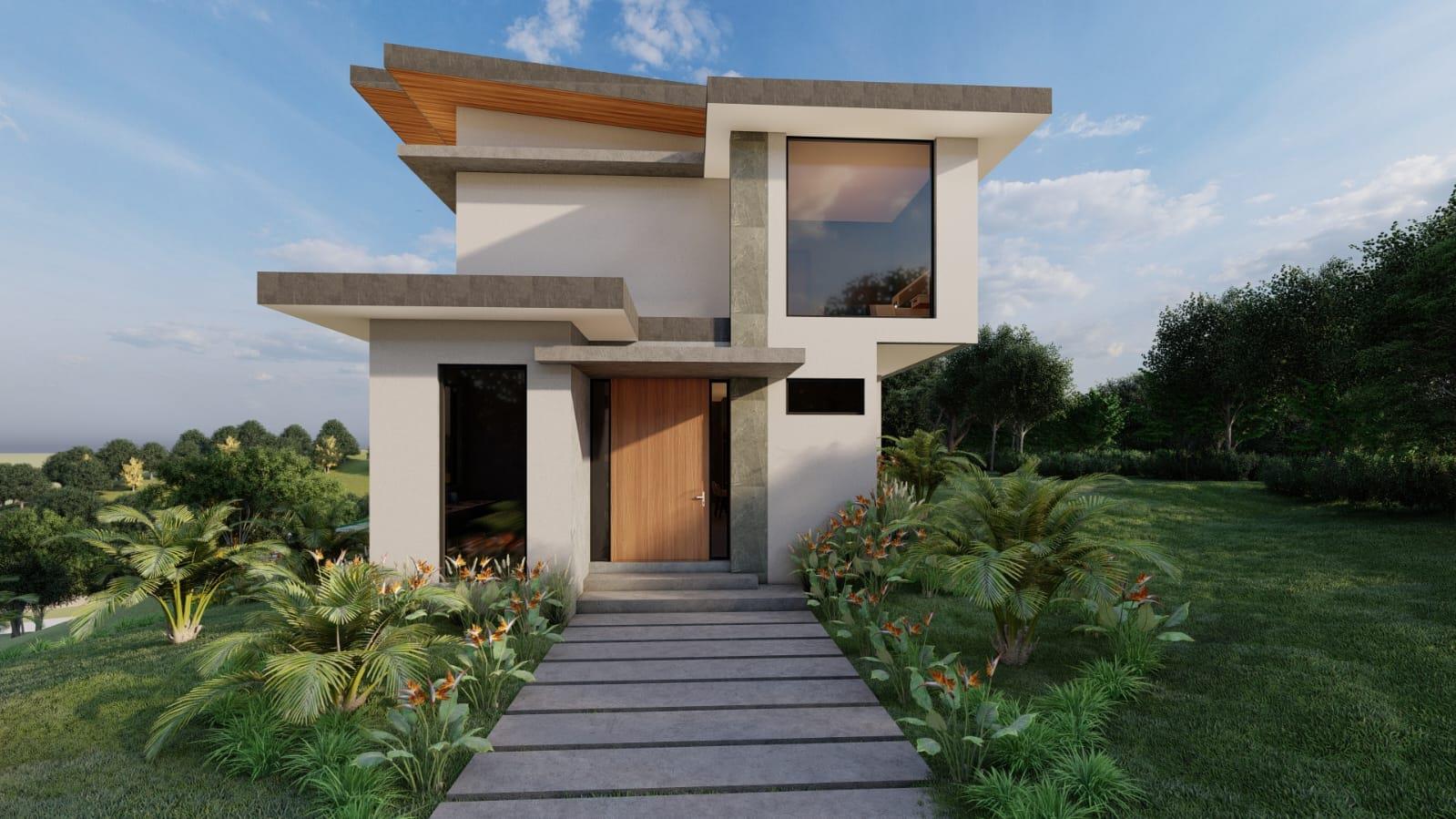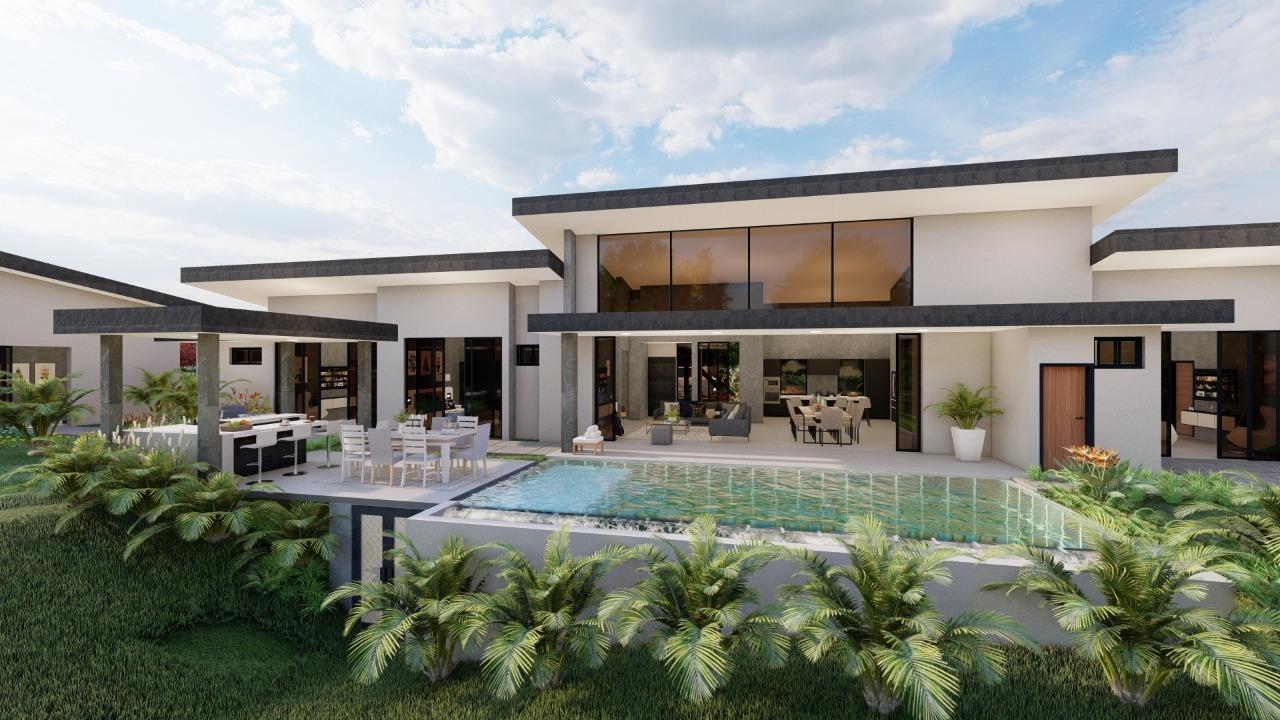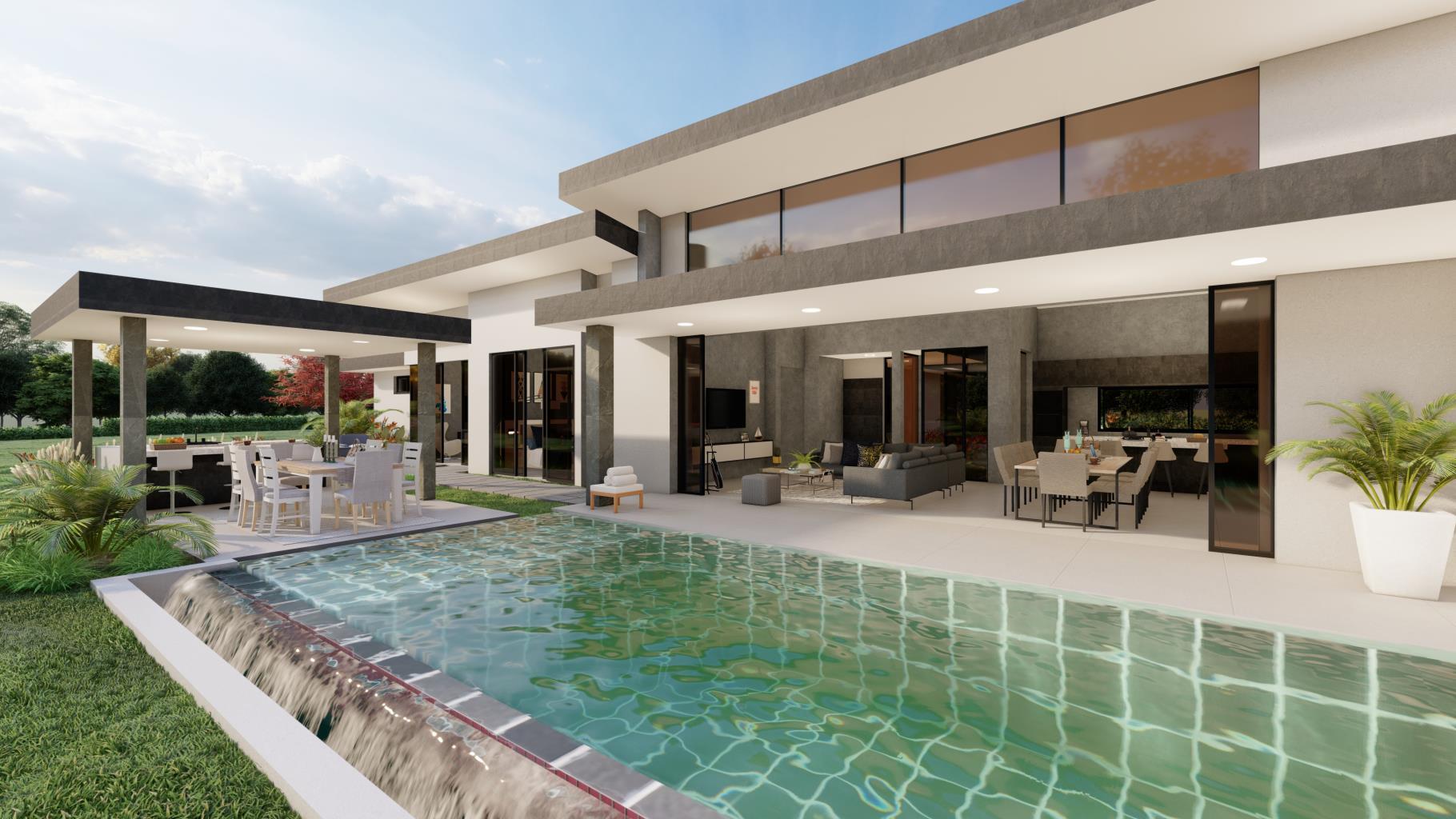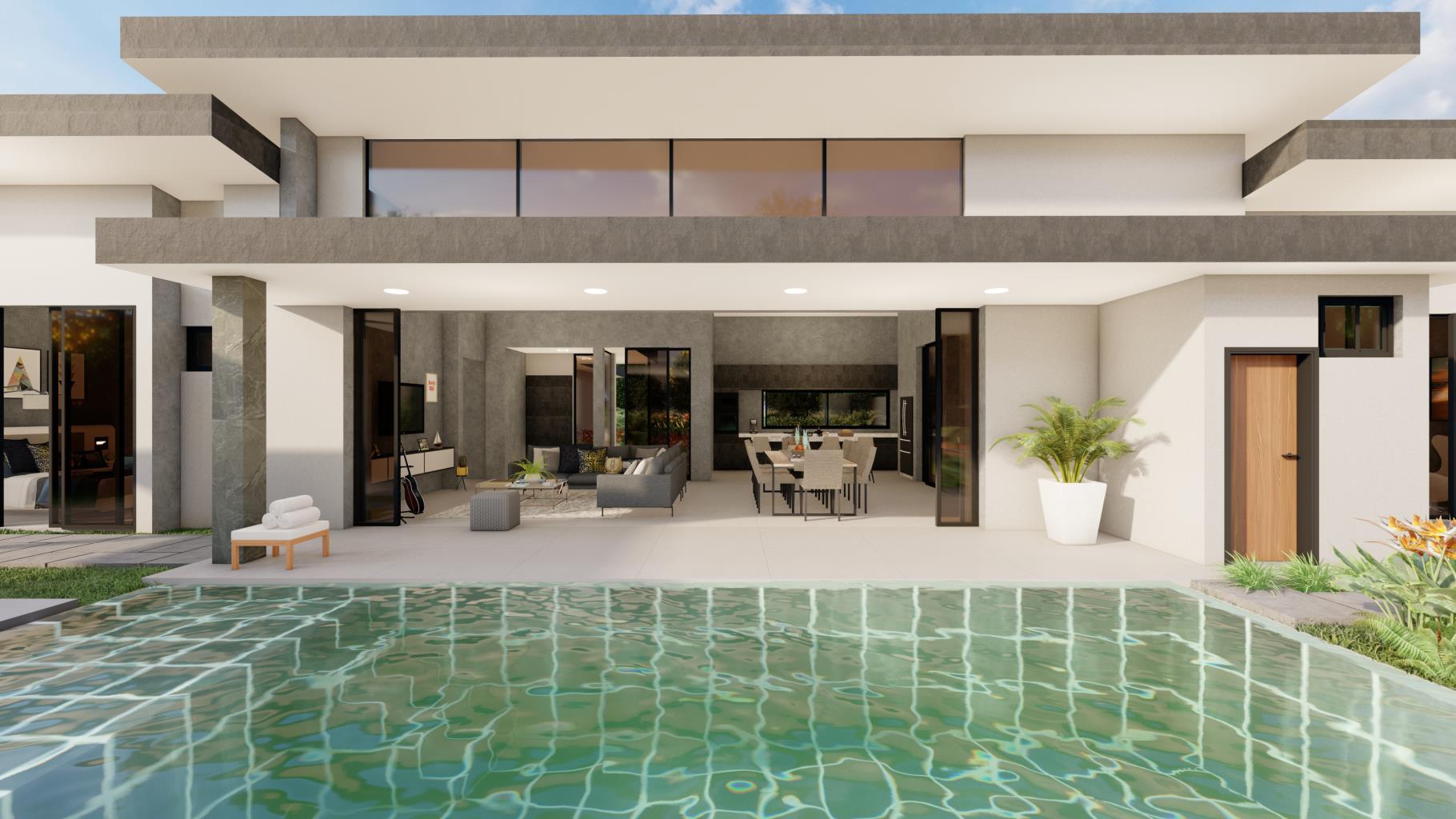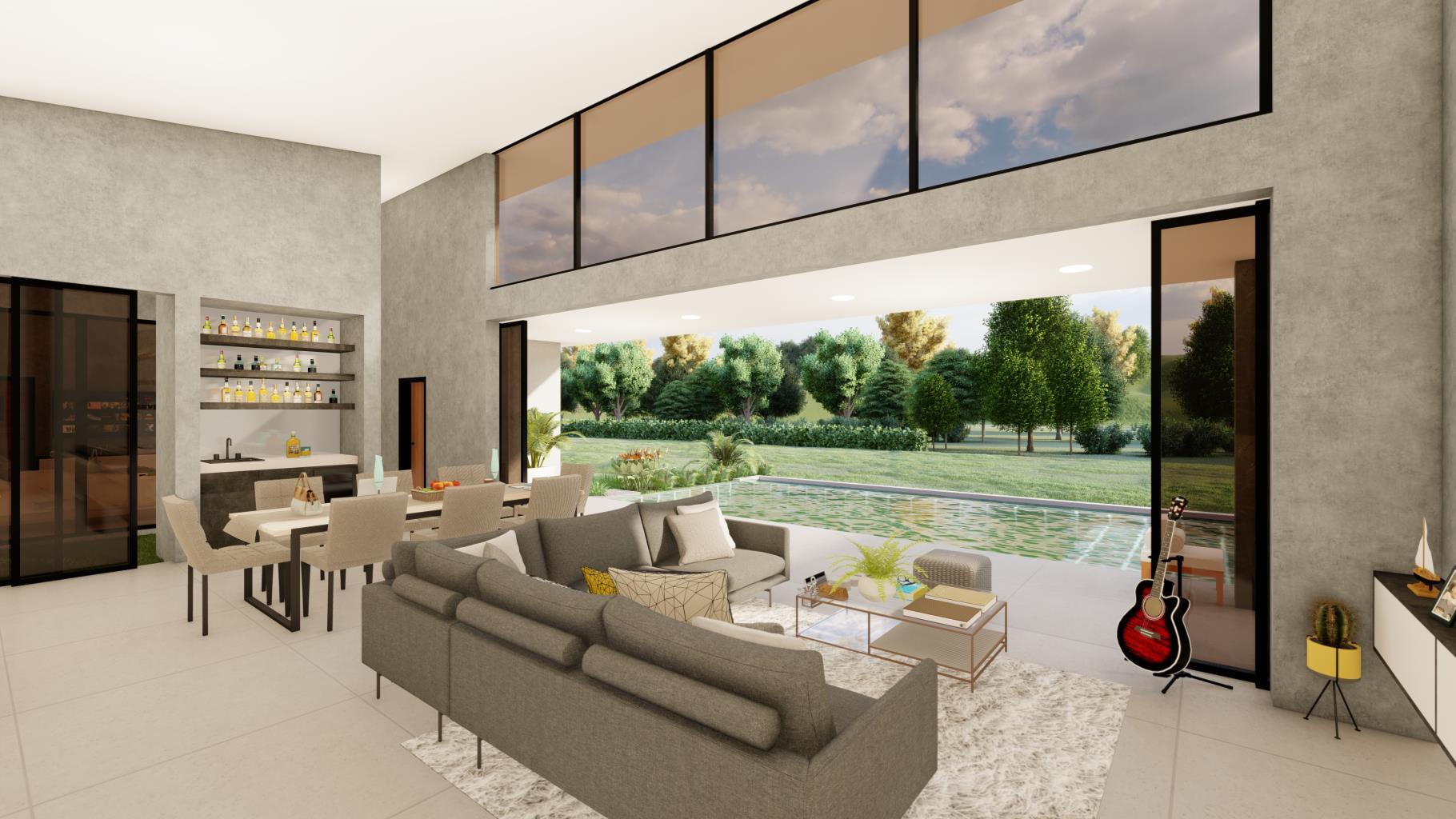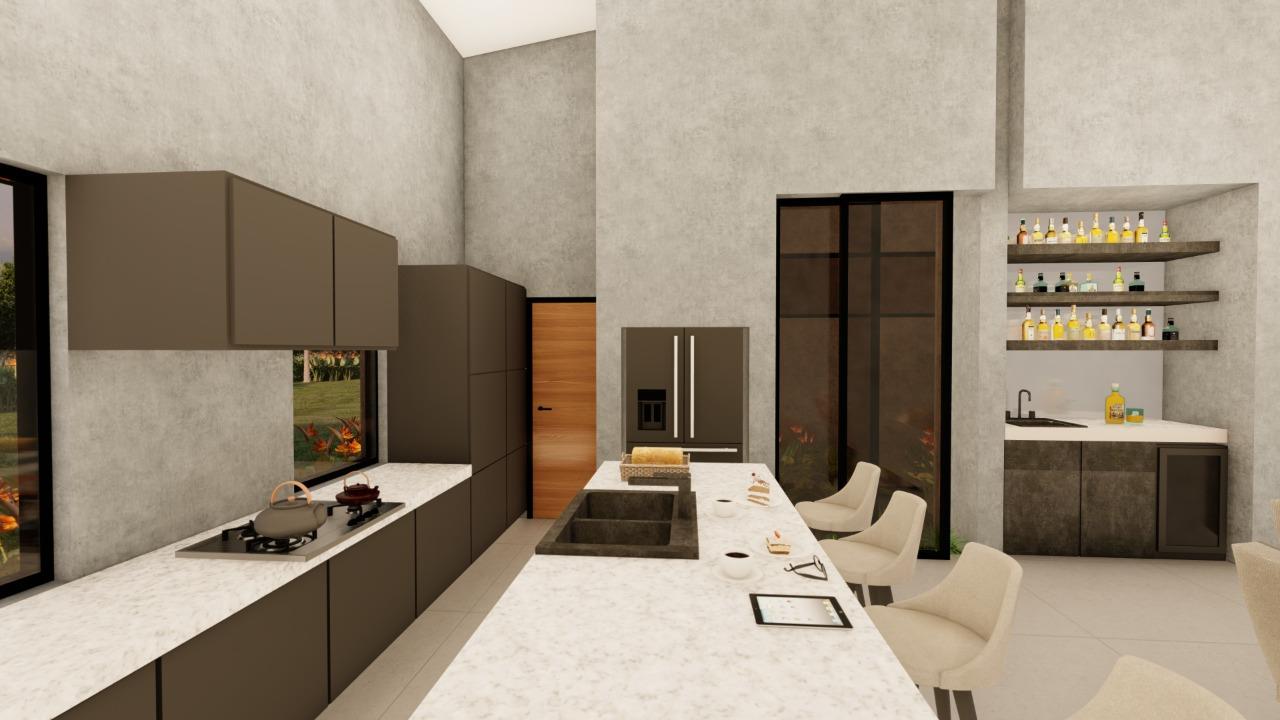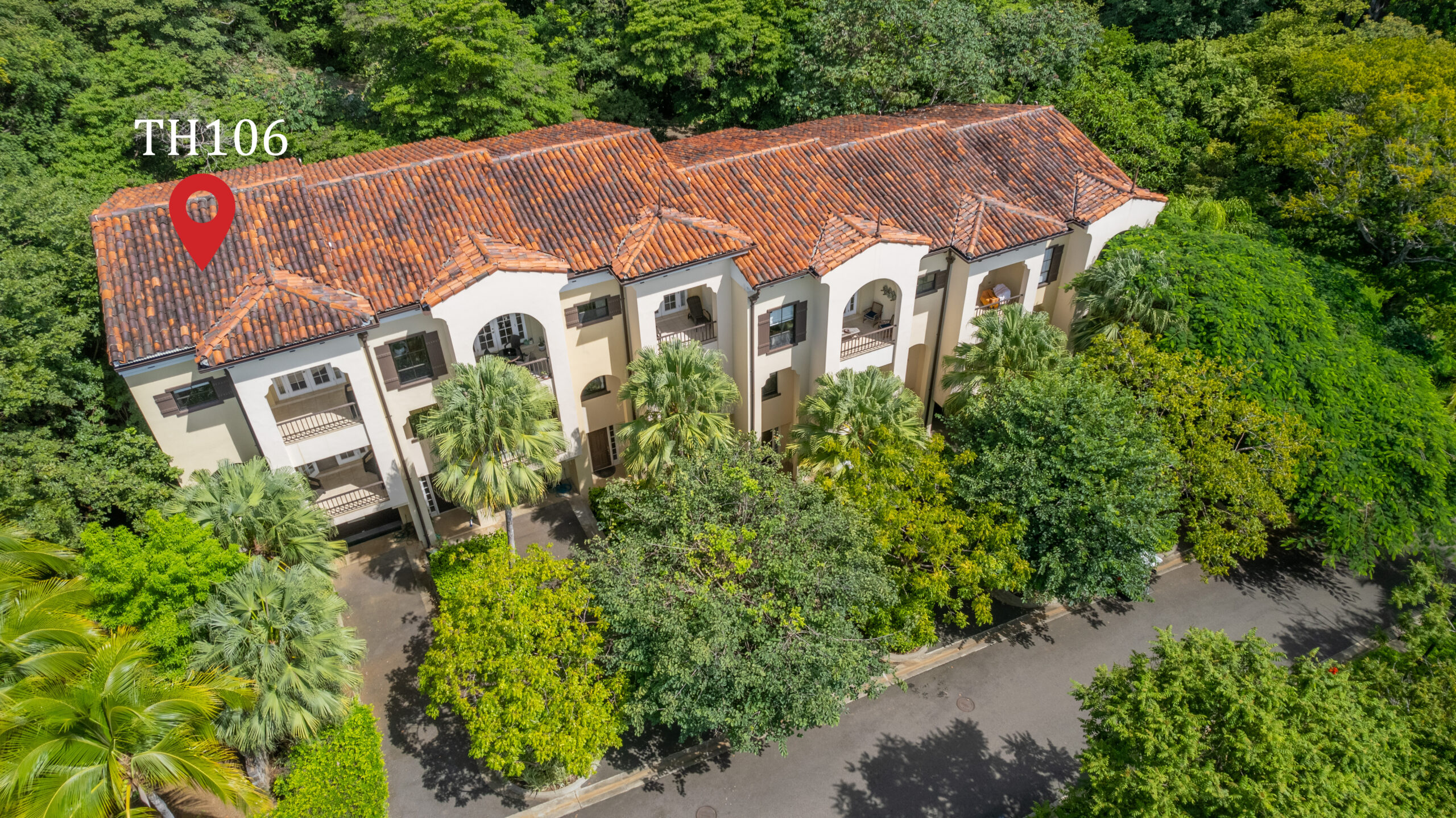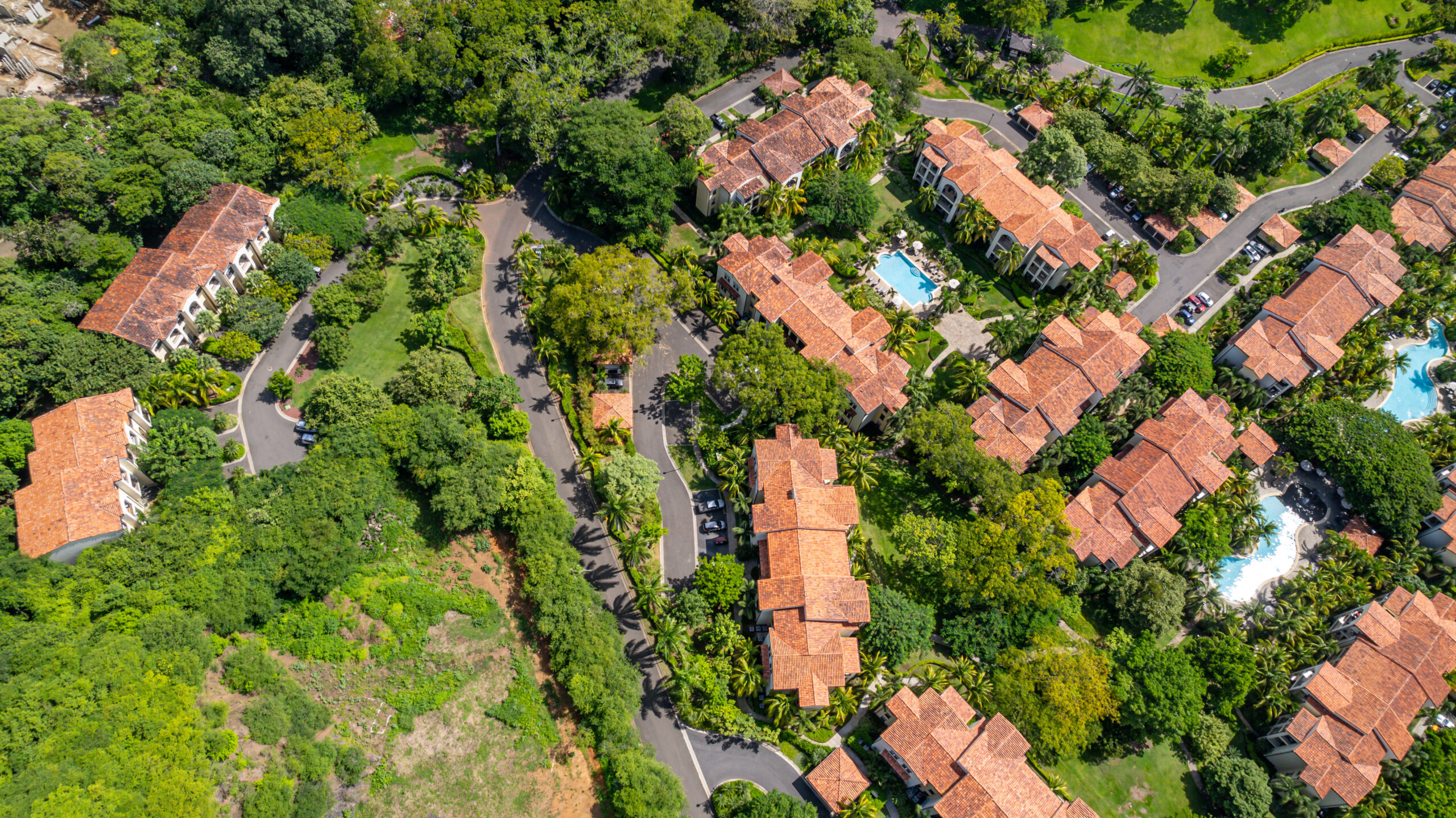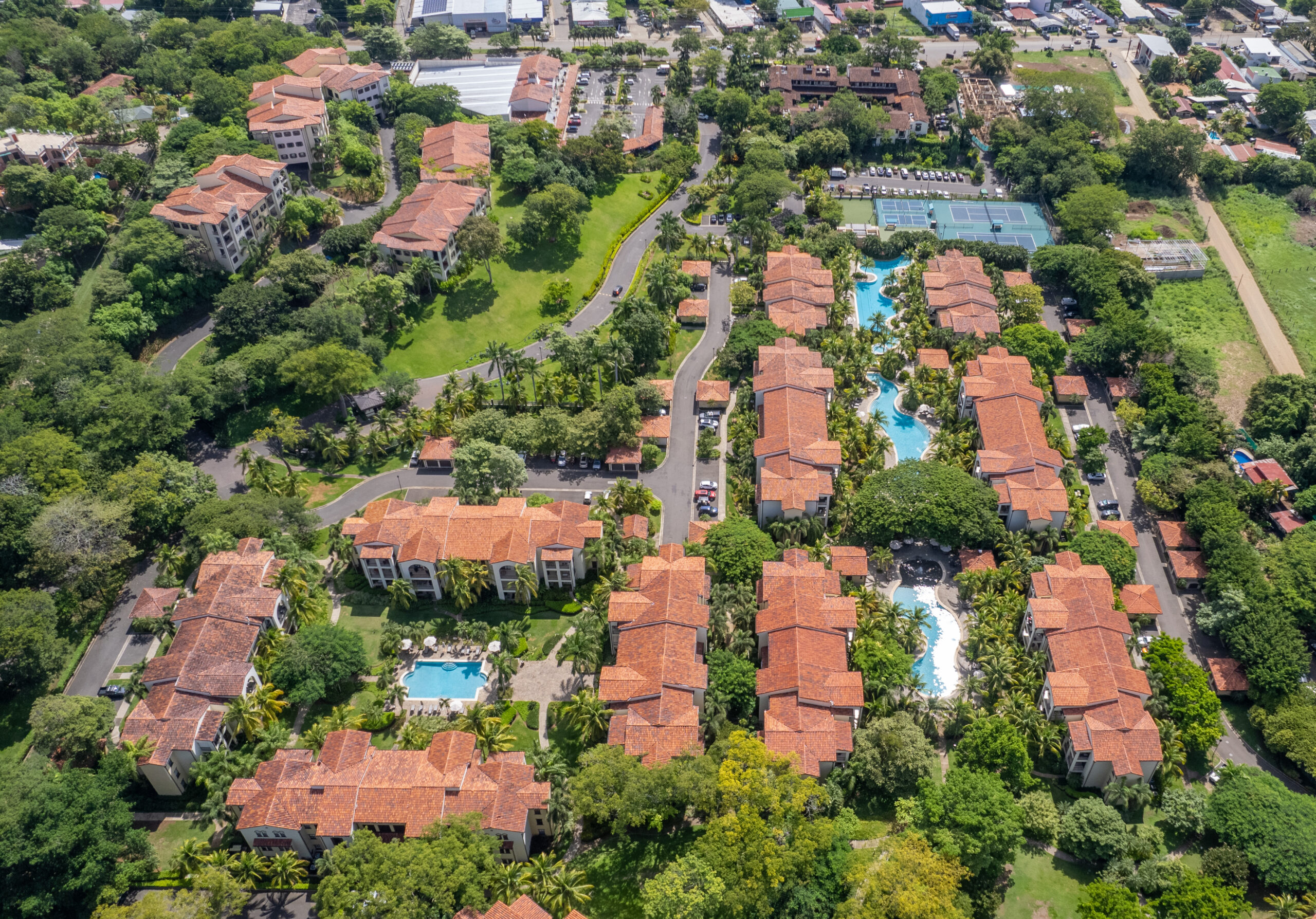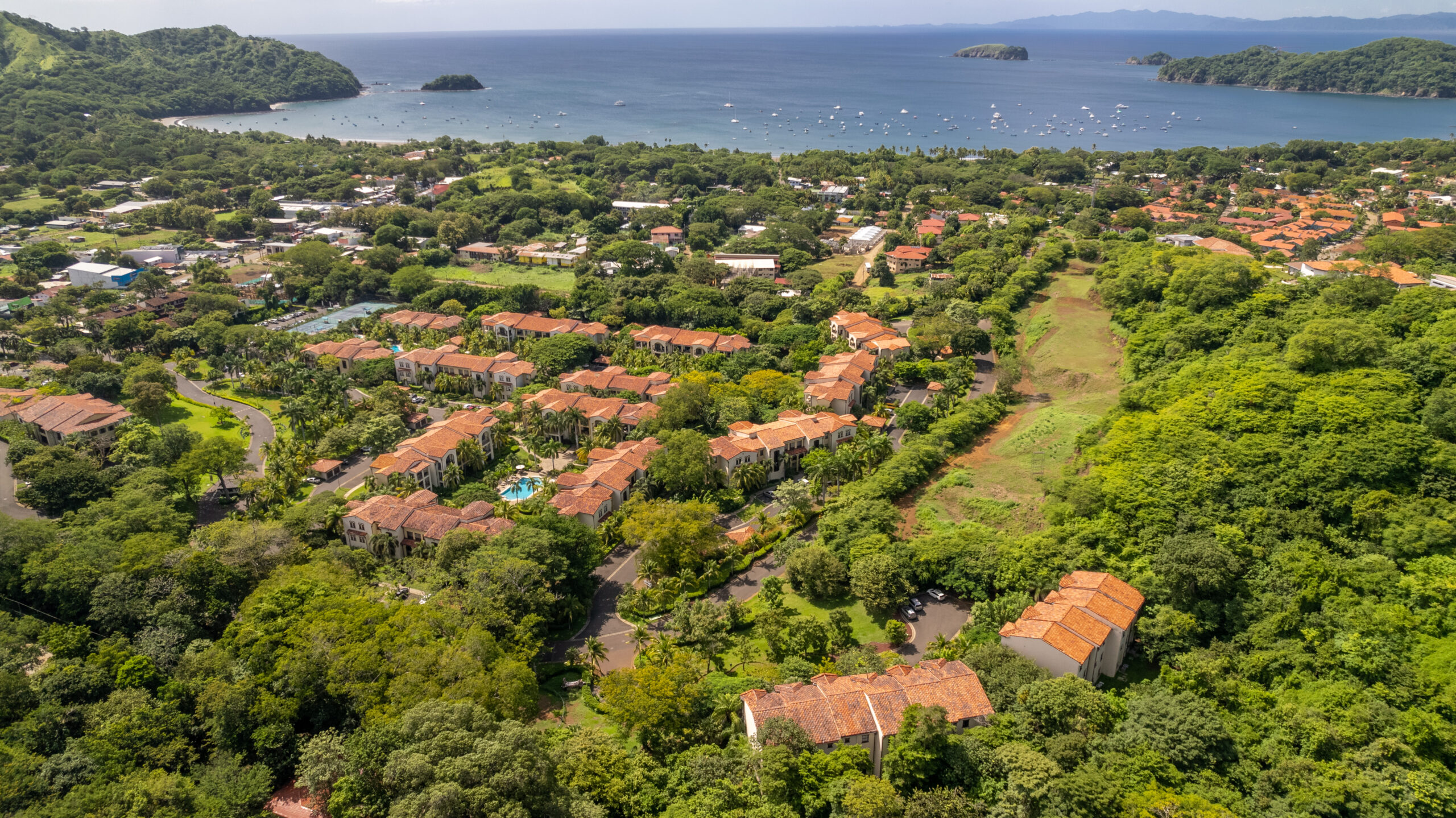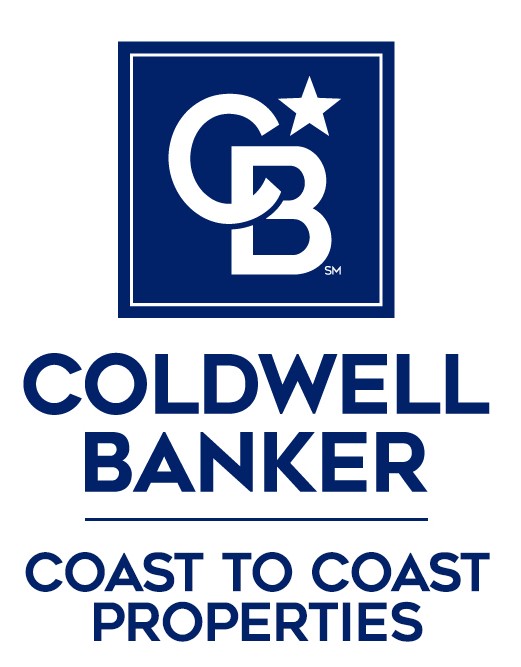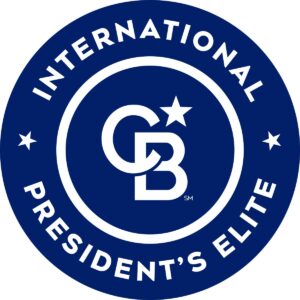Top 20 Frequently Asked Questions About Real Estate in Costa Rica

Real estate in Costa Rica has surged in popularity among foreign buyers in recent years. With lush rainforests, stunning beaches, and a pura vida lifestyle, it’s easy to see why. As interest grows, questions abound on everything from the buying process to ownership, taxes, and more. This guide will overview the top 25 most frequently asked questions to help you navigate the market.
What are the most popular destinations for foreign buyers?
The Papagayo region along the North Pacific coast in Guanacaste province of Costa Rica ranks among the top areas for foreign real estate buyers, especially the towns of Playas del Coco and surrounding beaches, Flamingo, and Tamarindo. With convenient airport access and world-class beaches dotted with luxury resorts, Papagayo coast offers ideal accessibility paired with postcard-worthy Pacific sunsets. Playas del Coco area features a vibrant mix of restaurants, shops, and nightlife and proximity to ultra luxury resorts like new Waldorf Astoria, Four Seasons and Ritz Carlton. Flamingo charms with a more low-key ambiance centered around its white sand beach and a new marina already constructed. Tamarindo lures surf lovers and eco-adventure travelers with its epic waves, green sea turtles nesting along the shoreline and close proximity to Marino Las Baulas National Park.
Is Costa Rica Safe for Real Estate Investments?
Investing in real estate is not just about the property itself; it’s also about the overall safety and stability of the region. Fortunately, Costa Rica boasts a reputation for being one of the safest countries in Central America. Its commitment to democracy, coupled with the absence of a military, has created a stable political climate that is attractive to investors. Foreigners have the same rights when it comes to property ownership, except for some nuances in the beachfront maritime zones.
Costa Rica maintains relatively low crime rates compared to its neighbors. The country places a strong emphasis on tourism and foreign investment, leading to dedicated efforts to ensure safety for residents and visitors alike.
Costa Rica relies heavily on tourism, and this has contributed to the country’s commitment to safety. Tourist destinations are well-patrolled and monitored, ensuring a secure environment for visitors. As an investor, you benefit from this proactive approach, as it extends to the areas where you might be considering real estate ventures.
What is the Real Estate buying process like in Costa Rica?
The buying process starts with identifying potential properties that match your criteria, often with the help of a local real estate agent. They can introduce you to options available and advise on the best fit for you. Since Costa Rica doesn’t have an MLS, and portals like Zillow and Trulia are not present here, it’s important to partner with an experienced agent who can guide you. Once you settle on a prospective property after tours and comparisons, your agent will negotiate on your behalf based on market conditions and the seller’s situation.
If it is your first time purchasing property in Costa Rica as a foreigner, retaining a bilingual attorney from the start is highly advisable to guide you when reviewing documentation, answering questions, explaining important considerations, and liaising with the notary.
The next key step after negotiating an offer is performing thorough due diligence concerning any legal, structural, or other issues associated with the property in questions. This is followed by a seven to ten day period for finalizing details towards closing the sale when all funds and documentation must be submitted and executed under notary oversight.
Signing before an authorized Costa Rican notary essentially formalizes the closing once they review and seal the deed transfer documentation, making it legally binding. Overall it is a relatively straightforward process with good support but does move at a more deliberate pace compared to some foreign markets. Taking the necessary steps with the right guidance ensures it goes smoothly.
For the Complete Process and Details Click Here.
How much are closing costs?
You can expect to pay around 4-5% of the purchase price in closing costs. Attorney fees, transfer taxes, and notary fees make up the bulk alongside miscellaneous administrative costs. Buyer pays all closing costs in the Papagayo region. Factor this in when budgeting.
For the Complete Process and Details Click Here.
What types of properties are available?
Expect to find condos, houses, villas, farms, land, commercial properties, and development opportunities across Costa Rica. New luxury developments dot the landscape, especially along the coasts catering to foreign buyers. But value can still be found, especially inland. Speak to your trusted Real Estate agent to guide you towards best investment opportunities.
Tell your real estate agent about your search criteria:
- What type of property?
- What size? Number of bedrooms/bathrooms?
- Price range and whether financing is needed
- Gated development?
- Amenities
- Ocean view or inland, etc
That covers some of the most popular questions on an introductory level. For detailed responses on additional common questions surrounding real estate laws, title transfers, property taxes, capital gains taxes, renting restrictions, building permits, language barriers, infrastructure, residency visas, property management, luxury amenities, eco-friendly constructions, land use laws, zoning regulations, and more – keep reading!
How Do I Find The Right Real Estate Agent?
Vet several agents before choosing one who specializes in your area of interest. Well-regarded luxury agents like Tony and Anna Velez with Coldwell Banker Coast to Coast Properties leverage extensive experience assisting foreign buyers find ideal properties along the Northern Pacific coast. Ensure whoever you choose has a strong track record with foreign clients, excellent communication skills, and solid networking contacts.
Ask for referrals from other expats who have gone through the purchase process successfully. Top agents will instill confidence in navigating the nuances around buying, renting, building, or investing as a foreigner. Having an advocate who can liaise seamlessly with attorneys and notaries will streamline much of the legwork. Do your due diligence to find the right fit.
What Legalities Do I Need To Know Before Buying?
While no residency requirements exist to purchase property, retaining bilingual legal guidance from the start ensures you fully understand and properly navigate real estate laws surrounding titles, deed transfers, trusts, easements, restrictions, citizenship considerations and more as a foreign buyer.
Your lawyer will vet all documentation related to titles, corporations, trusts or other entities involved in the sale. They will also verify no liens, judgments or inaccuracies exist which could invalidate the sale contract. Another key area they review encompasses associations, bylaws, easements, boundaries and exclusions on record associated with properties like condominiums.
Thorough due diligence performed by your lawyer allows them to address any discrepancies or missing information by requiring the seller to produce additional documentation prior to closing. Conveying all final required paperwork to the overseeing notary on your behalf for the official closing and transfer deed registration finishes the process.
Staying actively engaged with your lawyer and real estate agent throughout provides checks and balances to avoid unpleasant surprises. Their expertise pays dividends navigating the unfamiliar legal landscape.
How Can I Get The Best Deal?
Being flexible on location or amenities significantly expands your options as a buyer. Seek value opportunities inland or in emerging neighborhoods primed for growth versus established luxury areas where everyone competes over the limited inventory. While Oceanfront commands premium pricing, comparable tranquil settings abound closeby at a fraction of the cost. Homes that need work are often priced at discounts for a handy buyer willing to put in some elbow grease and monetize on the added equity.
Periodically a motivated seller more concerned with expedited liquidation over maximum profit will prioritize a quick close. Savvy buyers jump on these rare finds. Their flexibility coupled with your ability to act quickly strengthens bargaining power.
In hot tourist areas, visiting during the summer low season when many expatriate owners are away can reveal hidden inventory at more reasonable asking prices before seasonal upticks resume. Sellers may list aggressively or accept lower offers, avoiding additional vacancy stretches.
Mastering real estate cycles also allows you to anticipate shifts in supply dynamics or bidding climates so you can deploy patient capital awaiting inevitable corrections after periods of overexuberance. Check listing durations as indicators.
What Options Exist For Financing?
Obtaining financing has historically demanded substantial capital upfront or higher interest rates but improved access aims to accelerate foreign investment. Mortgages for non-residents become available through select international banks, especially using new property purchases as collateral once 50% or more gets paid initially.
Local banks now offer deposit-backed mortgage loans at competitive rates for residents – both expats and citizens. Typical terms run 15-20 years with 50-60% loan-to-values. Having assets on deposit helps secure the most favorable terms. Monthly incomes must sufficiently cover higher carrying costs.
Seeking financing remains easier in more established communities nearer city centers. Construction loans for custom builds exist but generally capped at 50% values so buyers should hold remaining capital. Attractive incentives emerge across luxury developments during pre-construction phases in particular since sellers benefit from accelerating payouts.
Investigating creative seller financing alternatives allows earnest buyers added flexibility, for example collateralizing with other assets. While costlier, this path pays dividends securing ideal properties if ready capital falls short. Consulting experienced real estate attorneys ensures protections on both sides.
The bottom line is that financing landscape continues evolving dramatically, opening doors to modernizing ownership models. Savvy buyers now possess far greater abilities to leverage that expanded access compared to the days of mandatory all-cash purchases. Work with pros to uncover your best options.
What Language Barriers Might I Encounter?
Since tourism infrastructure in Costa Rica means English prevails across most regions, many locals speak English. Furthermore, an actively engaged bilingual real estate agent fluent in English, Spanish and legal terminology will minimize complications tremendously alongside your attorney.
Consider cultural immersion to speed up the assimilation. Even picking up basic pleasantries and key vocabulary goes a long way building rapport and goodwill, endearing you faster once interactions turn friendlier sensing efforts. Costa Ricans, or Ticos as they call themselves, are one of the friendliest people on earth who make the transition a breeze and a pleasure.
Rely on your hired support team for direct interactions initially. Carve time focus building language skills through constant exposure, apps, lessons. Seek communities with more foreign residents who broke ground adapting already. Costa Rica rewards those embracing her heartfelt pura vida spirit. Open minds discover enriched experiences navigating unavoidable transitions adapting abroad.
Do I Need A Visa Or Residency To Buy Or Own?
While no special permits or visas exist purely for real estate purchases, you must enter Costa Rica on a standard tourist visa, which allows you to stay in the country for up to 180 days. For stays beyond 180 days, applying for formal residency is required. Seeking residency also opens additional benefits over time so it is worth considering.
There are several main residency options – “pensionado” for those with steady retirement income, “rentista” for those with substantial assets, “inversionista” for the investor category, and “friendship” visas based on marriage or relationships with citizens or permanent residents. Each category has specific income or asset thresholds you would need to meet and document.
The application process takes several months and involves submitting background checks, medical exams, financial evidence, paperwork fees and more to immigration authorities. An attorney will handle required procedures and interface with officials on your behalf. Initial grants run for 1-2 years, renewable provided you continually meet eligibility criteria.
Once granted, residency allows you to stay indefinitely in the country. It also makes financing easier, provides healthcare system access, eases re-entry if traveling, reduces vehicle taxes, and offers income tax deductions compared to tourists. Weigh the upfront investment against longer term lifestyle benefits when deciding timing. Consult qualified immigration specialists to determine suitable options.
More on visas and residency here.
How Does The Closing Process Differ?
While the steps remain largely similar, important nuances exist for foreigners to understand. Bid acceptance sets closing expectations around 30-60 days out, slightly longer than common in some countries. Attorneys drive required procedures behind the scenes.
Closing costs run 4-5% of purchase price and are paid by the buyer, incorporating set transfer taxes, notary charges, miscellaneous fees including payment processing, with little room for negotiation. Signing must happen before an authorized Costa Rican notary versus title companies.
The notary reviews all documentation assuring adherence to legal protocols before witnessing and sealing deeds to finalize transactions. They ensure no lingering judgments or liens tied to properties that could invalidate contracts. Title insurance provides added protection given intricacies verifying ownership history across less integrated systems.
For condos, extensive corporate paperwork gets assembled containing unanimous votes, bylaws, CC&R approvals. The notary validates meeting minutes where increases or changes made get discussed. Compare against personal plans if altering units as restrictions could apply post-purchase without proper disclosure.
With guidance to navigate procedural nuances, closings progress smoothly. Yet expect more fastidious, lengthy closing phases than Northern American standards.
For the Complete Process and Details Click Here
Who Manages The Property When I’m Away?
Trustworthy property management relieves major headaches for absentee or part-time owners given reliance on contractors for maintenance otherwise. Services span daily admin, rental and guest logistics, emergency response, vendor oversight – alleviating owner presence demands.
Established companies catering to foreign investors understand modern amenities coveted across higher-end residences especially. Ensure English fluency confirming staff can liaise easily if issues arise. Require rapid response times contractually for plumbing leaks, electrical faults, pool equipment malfunctions that can spiral if neglected in tropical zones.
Clarify everything included like landscaping needs, cleaning standards, rental advertising platforms utilized, distribution of funds, to optimize clarity. Consider community ties steering tenant selection where possible. Leverage past portfolios when evaluating competencies across language, hospitality skills, accessibility.
Video surveillance integration; automatic light timers and multi-lingual client apps allow seamless monitoring from afar now too. Just confirm license and insurance protections given overhead property access. Thorough vetting reduces headaches later so don’t cut corners.
What Are Property Taxes Like?
Property taxes in Costa Rica are assessed annually by local municipalities, rather than centrally. Expect to pay around 0.25% of the government-assigned property value each year. A luxury tax may be applicable on higher valued homes. This assigned value is often well below actual market value after exemptions get factored. Property tax bills distribute in Q4 with payment due by year end.
If you generate rental income, be prepared to file declarations accounting for gross overseas revenue. While rental income tax rates appear low, consult a tax advisor to understand total global tax obligations if resident versus a non-resident. Consider setups like LLC ownership for potential tax advantages depending on country ties.
Upon sale eventual capital gains taxes apply too. This excludes primary residence exemptions lasting at least 4 years. Model tax costs accurately when evaluating total ROI. Getting advising early optimizes planning.
How Do I Handle Utilities?
Internet access proves increasingly vital for foreign owners traveling often so arrange installation ahead if absent currently. Cable TV or satellite dishes allow international channels but streaming predominates. Compare broadband speeds across neighborhood infrastructure limitations if working remotely.
While electricity rarely undergoes interruptions in grid connected areas, consider generators or battery backups for added peace of mind. Given high AC usage, prepaying monthly kWh allotments prevents billing surprises. Conservative solar system installs offset dependencies while fortifying grids regionally long term as capacity struggles catching demand.
For water, inquire whether municipal hookups utilize modern metering versus truck delivery arrangements before purchasing across rural locales. Septic tanks remain common but involved professional maintenance every 2-3 years preventing unpleasant surprises from leaks if unfamiliar dealing personally.
Paying for your utilities is easiest via internet banking using your Costa Rican bank account. Many utility providers also accept foreign credit cards, but check first before assuming it is so.
What Restrictions Exist For Rental Income?
Fortunately, Costa Rica imposes virtually no restrictive regulations surrounding rental income generation beyond requiring proper tax declarations. This flexibility fuels short term rental platform growth as owners easily tap surging travel demand without prohibitive barriers common elsewhere.
Digital accommodation disruptors like Airbnb, VRBO and Booking simplified listing, marketing and guest logistics management tremendously compared to traditional annual arrangements. Owners now leverage expansive visibility to target high yield tourist segments. Local regulation continues playing catch up however so monitor shifts.
If your property is located within an HOA community check the HOA rules to ensure it allows for the type of rental you are looking to do. Some developments have restrictions on certain short term rentals or the amount of people that can stay in the home during any given time.
What Other Costs Should I Anticipate?
Beyond taxes and utilities, budget for HOA fees, insurance, maintenance, and property management if renting or traveling extensively.
Homeowners association equivalents apply across many condos, towns, or developments encompassing amenities upkeep, staffing, infrastructure needs. These shared costs distribute across owners annually or upon major projects based on voting decisions.
Leverage your property manager to facilitate household repairs or installations. Typical fixes like appliance replacements or drain unclogs are common and should be expected.
How Easy Is It For Me To Sell Later On?
Costa Rica’s property market historically experienced intermittent surges followed by protracted softening periods, making timing sales key to maximize values. This continues evolving with flexibility improving across high amenity regions like beach and eco-luxury communities.
The sale process takes 2-6 months on average with more established agents and promoters smoothing transactions faster, especially those focused online and abroad now. Exceptional finishes or smart renovations further desirability.
For resales a decade old or longer, budget moderate upgrades refreshing properties to current modern standards – open floor plans, smart home automations, outdoor living, faster internet. Kitchens and baths hold best ROI returns on makeover investments boosting valuation.
Budget additional 6%+tax sale commissions plus 1-2% closing costs requiring official deed transfers before notaries for release of funds. Capital gain taxes apply if primary residence status unmet or appreciation lands substantial.
Overall the path to successful liquidity expands yearly as foreign appetite and infrastructure modernizes further.
What Private Amenities Do Complexes Offer?
Luxury communities catering to foreign owners incorporate premium facilities and services rivaling upscale resorts as development quality improves dramatically. Expect fully equipped fitness centers, tennis courts, infinity pools, game rooms with billiards, bars and spacious clubhouse seating for large groups.
Chef kitchens allow resident gatherings and parties while business centers feature computers, copying, secure mailrooms supporting remote working needs. Some premises offer miniature grocery stores or cafes reducing errand demands.
Extensive landscaping dotting relaxation gazebos prevails along winding walking trails to appreciate spectacular sunrises and sunsets. Yoga classes, golf access arrangements, discount spa offerings, fishing trips and insider local excursion perks get negotiated across adjacent sister properties providing owners included value.
Concierge personnel handle housekeeping, transportation bookings and provide new resident orientation explaining details like emergency protocols if primarily catering short term tenants. Monthly community newsletters and activity flyers enhance engagement opportunities welcoming all ages making fast friends.
.
Are There Good Schooling Options Available?
Along with public schools private bilingual academies expanded exponentially across zones seeing spikes in foreign families relocating. Curriculums align more closely with North American or European expectations targeting subject mastery and higher learning in English or other languages.
Accredited K-12 schools model premier global institutions, encouraging critical thinking and creativity through smaller classroom sizes and highly educated faculty. College prep focuses steer graduates towards prominent university acceptance abroad. Robust arts, music, sports programs further develop well-rounded youths.
Newer modular campuses constructed across suburbs cater international enrollment booms. Technological immersion keeps pace with global benchmarks harnessing classroom tablets, digital lessons and research databases. Select institutions offer boarding accommodations if locating rurally.
However cultural assimilation challenges still emerge among peer groups over time so evaluate social dynamics and tolerance gauging optimal fits, especially approaching junior high and high school years when identities cement. Consider cities offering more diverse exposure.
Here’s the list of private schools in Papagayo region on Guanacaste Province:
Dolphins Academy School in Playas del Coco, GU
Lakeside International School near Playas del Coco, GU
Sea Wonders Academy near Playas del Coco, GU
La Paz Community School (Tempisque Campus) in Communidad, GU
Academia Teocali in Liberia, GU
Colegio Bilingüe Ciudad Blanca in Liberia, GU
CRIA Academy in Brasilito, GU
La Paz Community School (Cabo Velas Campus) in Cabo Velas, GU
How Eco-Friendly Are Developments?
Long a global leader prioritizing ecological preservation and sustainability, Costa Rica accelerates green building innovations as environmental consciousness permeates consumer preferences further. Strict protected wilderness zoning expands as tourism dependence forces developers adopting more regenerative models to maintain the allure attracting visitors initially.
Expect emphasis on renewable materials like bamboo wood for finishes, floors or cabinetry across projects minimizing old growth logging. Solar power adoption spreads dramatically from electricity generation to water heating systems while graywater recycling reduces consumption strains. Energy star certified appliances prevail in newer units as EV charging stations become status quo community inclusions.
Architectural design shifts towards operable window walls, transitional indoor-outdoor layouts honoring the coveted tropical lifestyle pursuit. Rooftop hydroponic gardens dot condos nurturing hyperlocal food production. Rainwater capture cisterns supplement landscaping irrigation needs while native, adaptive plantings reduce maintenance.
Expect exceptional commitment towards renewable models as Costa Rica continues trailblazing global sustainability.
.
5 Key Takeaways
- Costa Rica offers stunning natural beauty and laid back lifestyle but bring ample patience navigating real estate purchases.
- Seek quality legal and real estate advising to avoid missteps working cross-culturally with different norms.
- Location dictates options so research thoroughly before identifying target areas aligned budget and goals.
- Technology progression improving ownership experience considerably regarding security, sustainability, functionality.
- Costa Rica offers a splendid backdrop maximizing quality of life aspirations for those focused on family, health, purposeful living and community.
Featured Listings
WALDORF ASTORIA ESTATE HOMES AND RESIDENCES GUANACASTE -5 Bedroom, 3-Story Estates
19 FURNISHED OCEANFRONT CONDO RESIDENCES 2- and 3-Bedroom Residences (3-...
- 5 beds
- 5 baths
- 4996 sq ft
Casa Ultramar-Coco Bay 14- Ocean View Architectural Masterpiece: Architectural Marvel by the Ocean
**Casa Ultramar: A Modern Oasis with Ocean Views in Coco...
- 4 beds
- 4 baths
- 2585.58 m²
Partial Ocean View Modern Home – Monte Paraiso 2, Playa Hermosa, GU
Move right into this beautiful tastefully furnished newer modern home...
- 3 beds
- 4 baths
- 2840 sq ft
- 2353 m²
Serene Valley View New Modern Home in Vista Ridge Golf Community
Discover the allure of a new pre-construction home with breathtaking...
- 3 beds
- 3 baths
- 3229 sq ft
- 6798.719 m²
Villa Mar Verde, 2B Vista Ridge Golf Community, San Blas
Enjoy this brand new elegant modern compound residence and choose...
- 5 beds
- 5 baths
- 4510 sq ft
- 5220.445 m²
Pacifico Townhouse TH106 Luxury Development, Amazing Amenities
Step into the epitome of warmth and comfort with this...
- 4 beds
- 4 baths
- 2311 sq ft
